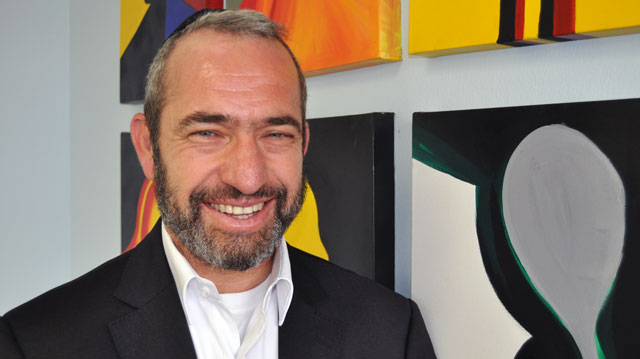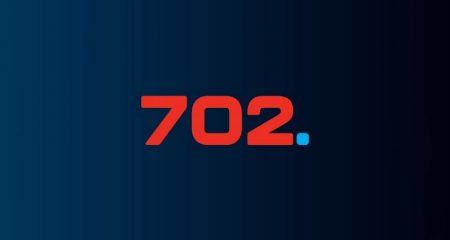
Though he’s mostly been out of the headlines in recent years, Primedia founder William Kirsh didn’t disappear into early retirement when he resigned in September 2009 as CEO of the media empire he led and helped build.
Rather, he’s been hard at work creating a new business — with his father, Talk Radio 702 founder Issie Kirsh, as its executive chairman — using the same fundamental approach he employed when growing Primedia into a multibillion-rand-revenue business that today owns 702, Highveld Stereo, Ster-Kinekor and a range of other assets.
Apart from an aborted merger with JSE-listed FoneWorx last year, Kirsh has kept below the radar, snapping up acquisitions as he seeks to build his new venture, Value+ Nettwork, into a formidable player in the loyalty or “value” space, an industry he believes is waiting to be tapped.
If he’s able to build another business the size of Primedia, that would be a “blessing”, he says, when I ask him if that’s his mission. “It’s not the focus,” he says.
Kirsh says he left Primedia because, when the business was delisted from the JSE, it “took away my ability to do what I do best — creating, building, [making] acquisitions”.
He realised, he says, that he had to make way for a strong operational leader, someone who could focus on maximising cash flow — the company had taken on significant debt when it had delisted. This, coupled with the fact that he wanted to spend more time with his family and exploring what his faith meant to him — he has become an observant Jew – led him to his decision to step down.
I realised my mortality when I turned 40. I started to ask questions about life that I’d never asked before.
“There comes a time in everyone’s life when you have to move on,” he says. “I had valid reasons and good reasons for moving on. While I was leaving my baby, so to speak, it was time.”
His focus on his faith was also a big driver. “I realised my mortality when I turned 40,” he tells me. “I started to ask questions about life that I’d never asked before. I asked why I was born a Jew and what that meant. That got me on a journey of discovery, of understanding.
“In my pre-40 years I was singularly focused on the business world,” he adds. “I have become increasingly focused on other areas of my life. The business world is still an enormous focus for me, but it’s not done at the expense of the other parts of my life.”
Kirsh admits that he wasn’t sure what he would do, business wise, after leaving Primedia.
“I thought I might play in the private equity game and was considering investing in this company that provided rewards and loyalty. I didn’t buy into the company, but I started getting exposed to companies in that space.”
As time went by, he realised there was potentially a big opportunity in customer loyalty in South Africa. More and more companies were launching loyalty programmes.
As the media industry fragments — with audiences spoilt for choice — this is presenting a growing challenge for advertisers because they’re no longer sure what media their customers are consuming. Ensuring loyalty among customers was becoming more important than ever, Kirsh says.
“If you look at the US market, which is supposed to be a mature media and loyalty market, there is huge audience fragmentation taking place, yet loyalty membership is growing strongly. The more the media industry fragments, the more the loyalty industry grows, and this is going to continue.”
Kirsh believes the big opportunity waiting to be tapped in South Africa is among small and medium enterprises that don’t have the financial capacity or the skills to launch their own loyalty programmes. He saw an opportunity to consolidate the industry.
“There is no one company in South Africa that holds this space.”
Value+ Nettwork has made a number of acquisitions, starting with a mass-market loyalty business called Amazing Vouchers. Other acquisitions include prepaid value specialist Opengate, which operates a “prepaid load network” focused on providing services to issuers of private label gift and payments cards, and data analytics firm Eighty20.

Other acquisitions include staff and supply chain loyalty business WOW and Game On!, which plays in a similar space to Amazing Vouchers. It’s also bought OnePoint, which provides consumers with an online view of their loyalty points across different programmes, allowing them, for instance, to exchange points from one to another, and Mygeni, a recent acquisition that gives Value+ an entry into the social media space.
Kirsh says the Value+ Network blueprint or framework, which he has spent more than three years developing, allows the company to develop loyalty programmes — again, he prefers the term “value” — out of any product or service provided this is delivered digitally, is affordable (or free) and can be exploited across the corporate and consumer markets.
“We have acquired the companies we have against this blueprint,” he says. “In business, you really have to know where you’re going. When I started Primedia, I didn’t know which companies I was going to acquire. When Ster-Kinekor and Highveld and KFM came along, we acquired them because they fitted. That’s how we moved the group, and that’s how we’re moving Value+ Nettwork.”
It hasn’t all been plain sailing, however. The aborted merger with FoneWorx led to accusations flying between both parties after FoneWorx reportedly discovered that financial figures at Opengate had been revised and that the business needed more investment than previously disclosed.
The board of FoneWorx later declared a dispute with the Kirsh family, accusing them of a “hostile, inappropriate and mischievous attempt to discredit a well-managed company” in order to control FoneWorx and its cash reserves, according to Business Day. The public fallout followed a vote of no confidence by the Kirshes over a “lack of corporate governance and strategy” by two of FoneWorx’s nonexecutive directors.
The transaction was terminated “by mutual consent” and all disputes resolved. The Kirsh family then sold its stake to Caxton and CTP Printers & Publishers for R102,5m.
After carefully considering his answer, Kirsh tells me that the deal fell apart because there was a “different cultural mindset” between the two companies. “Ours is very entrepreneurial and risk-taking,” he says. “They’re conservative. That was the major breaking point.”
Kirsh says he is “not upset” that the deal broke down. “We have a fabulous group with fabulous growth potential, and in many respects, that deal was premature.”
However, it doesn’t mean Value+ Nettwork will shy away from acquisitions. The business, which is 80% owned by Kirsh and his father, will grow in part through organic growth, but also through buying other companies to “build up the network”.
He’s convinced he’s onto a winning formula. “All people, no matter their race, value or creed, have an innate need for value,” he says. “Everyone wants a deal. And most people have the same needs and desires. If you understand the human psyche and this new architecture, you are better equipped to deliver the right value categories to the right people.” — (c) 2014 NewsCentral Media




